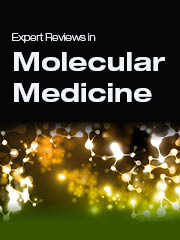Crossref Citations
This article has been cited by the following publications. This list is generated based on data provided by
Crossref.
Alberú, Josefina
Richaud‐Patin, Yvonne
Vázquez‐Lavista, Luis Gabriel
de Leo, Claudia
Guzmán‐Rodríguez, Hugo
Mancilla, Eduardo
Correa‐Rotter, Ricardo
Chew‐Wong, Alfredo
and
Llorente, Luis
2004.
In vivo IL‐10 and TGF‐β production by PBMC from long‐term kidney transplant recipients with excellent graft function: a possible feedback mechanism participating in immunological stability.
Clinical Transplantation,
Vol. 18,
Issue. 2,
p.
174.
Ecker, Rupert C.
and
Steiner, Georg E.
2004.
Microscopy‐based multicolor tissue cytometry at the single‐cell level.
Cytometry Part A,
Vol. 59A,
Issue. 2,
p.
182.
Nabel, Gary J
2004.
Genetic, cellular and immune approaches to disease therapy: past and future.
Nature Medicine,
Vol. 10,
Issue. 2,
p.
135.
Sperling, Mark A.
2004.
The expanding horizons of Pediatric Diabetes.
Pediatric Diabetes,
Vol. 5,
Issue. 1,
p.
1.
McNamee, Cathy E.
Pyo, Nayoung
Tanaka, Saaya
Vakarelski, Ivan U.
Kanda, Yoichi
and
Higashitani, Ko
2006.
Parameters affecting the adhesion strength between a living cell and a colloid probe when measured by the atomic force microscope.
Colloids and Surfaces B: Biointerfaces,
Vol. 48,
Issue. 2,
p.
176.
Galdiero, Marilena
Vitiello, Mariateresa
D’Isanto, Marina
Raieta, Katia
and
Galdiero, Emilia
2006.
STAT1 and STAT3 phosphorylation by porins are independent of JAKs but are dependent on MAPK pathway and plays a role in U937 cells production of interleukin-6.
Cytokine,
Vol. 36,
Issue. 5-6,
p.
218.
Wan, Bin
Fleming, James T.
Schultz, Terry W.
and
Sayler, Gary S.
2006.
In Vitro
Immune Toxicity of Depleted Uranium: Effects on Murine Macrophages, CD4
+
T Cells, and Gene Expression Profiles
.
Environmental Health Perspectives,
Vol. 114,
Issue. 1,
p.
85.
Roselló-Lletí, Esther
Rivera, Miguel
Bertomeu, Vicente
Cortés, Raquel
Jordán, Alejandro
and
González-Molina, Andrés
2007.
Interleucina-4 y fibrosis miocárdica en pacientes con insuficiencia cardiaca.
Revista Española de Cardiología,
Vol. 60,
Issue. 7,
p.
777.
Podtschaske, Miriam
Benary, Uwe
Zwinger, Sandra
Höfer, Thomas
Radbruch, Andreas
Baumgrass, Ria
and
Kanellopoulos, Jean
2007.
Digital NFATc2 Activation per Cell Transforms Graded T Cell Receptor Activation into an All-or-None IL-2 Expression.
PLoS ONE,
Vol. 2,
Issue. 9,
p.
e935.
Roselló-Lletí, Esther
Rivera, Miguel
Bertomeu, Vicente
Cortés, Raquel
Jordán, Alejandro
and
González-Molina, Andrés
2007.
Interleukin-4 and Cardiac Fibrosis in Patients With Heart Failure.
Revista Española de Cardiología (English Edition),
Vol. 60,
Issue. 7,
p.
777.
Erhardt, Annette
Biburger, Markus
Papadopoulos, Thomas
and
Tiegs, Gisa
2007.
IL-10, regulatory T cells, and Kupffer cells mediate tolerance in concanavalin A-induced liver injury in mice.
Hepatology,
Vol. 45,
Issue. 2,
p.
475.
Silva-Alves, J.M.
Mares-Guia, T.R.
Oliveira, J.S.
Costa-Silva, C.C.S.S.
Bretz, P.C.R.
Araújo, S.S.
Ferreira, E.
Coimbra, C.C.
Sogayar, M.C.
ReisJunior, R.
Mares-Guia, M.L.
and
Santoro, M.M.
2008.
Glucose-induced heat production, insulin secretion and lactate production in isolated Wistar rat pancreatic islets.
Thermochimica Acta,
Vol. 474,
Issue. 1-2,
p.
67.
Rynda, Agnieszka
Maddaloni, Massimo
Mierzejewska, Dagmara
Ochoa-Repáraz, Javier
Maślanka, Tomasz
Crist, Kathryn
Riccardi, Carol
Barszczewska, Beata
Fujihashi, Kohtaro
McGhee, Jerry R.
and
Pascual, David W.
2008.
Low-Dose Tolerance Is Mediated by the Microfold Cell Ligand, Reovirus Protein σ1.
The Journal of Immunology,
Vol. 180,
Issue. 8,
p.
5187.
Danelon, Christophe
and
Vogel, Horst
2008.
Single Molecule Dynamics in Life Science.
p.
131.
Jirak, Daniel
Kriz, Jan
Strzelecki, Michal
Yang, Jiabi
Hasilo, Craig
White, David J.
and
Foster, Paula J.
2009.
Monitoring the survival of islet transplants by MRI using a novel technique for their automated detection and quantification.
Magnetic Resonance Materials in Physics, Biology and Medicine,
Vol. 22,
Issue. 4,
p.
257.
Yucesoy, Berran
Johnson, Victor J.
Fluharty, Kara
Kashon, Michael L.
Slaven, James E.
Wilson, Nevin W.
Weissman, David N.
Biagini, Raymond E.
Germolec, Dori R.
and
Luster, Michael I.
2009.
Influence of cytokine gene variations on immunization to childhood vaccines.
Vaccine,
Vol. 27,
Issue. 50,
p.
6991.
Rajaiah, Rajesh
Lee, David Y.-W.
Ma, Zhongze
Fan, Arthur Y.
Lao, Lixing
Fong, Harry H.S.
Berman, Brian M.
and
Moudgil, Kamal D.
2009.
Huo-Luo-Xiao-Ling Dan modulates antigen-directed immune response in adjuvant-induced inflammation.
Journal of Ethnopharmacology,
Vol. 123,
Issue. 1,
p.
40.
Wang, Jiashan
and
Pelling, Andrew E.
2010.
Cell sheet integrity and nanomechanical breakdown during programmed cell death.
Medical & Biological Engineering & Computing,
Vol. 48,
Issue. 10,
p.
1015.
Zibar, L.
Wagner, J.
Pavlinić, D.
Galić, J.
Pasini, J.
Juras, K.
and
Barbić, J.
2011.
The Relationship Between Interferon‐γ Gene Polymorphism and Acute Kidney Allograft Rejection.
Scandinavian Journal of Immunology,
Vol. 73,
Issue. 4,
p.
319.
Silberberg, Yaron
Guolla, Louise
and
Pelling, Andrew
2011.
Life at the Nanoscale.
p.
375.


